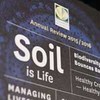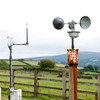Study marks a controversial stand in a lively, ongoing debate about the sustainability of biomass derived from forests.
Study marks a controversial stand in a lively, ongoing debate about the sustainability of biomass derived from forests.
Imported wood pellets can be environmentally sustainable and beneficial, conclude bioenergy specialists from some of the world’s leading research institutes in a detailed analysis published today. The study marks a controversial stand in a lively, ongoing debate about the sustainability of biomass derived from forests.
In their letter in GCB Bioenergy, the large multinational group concludes that wood pellet production can protect and improve forests, support livelihoods, encourage better management practices, and enhance ecosystem services, the natural mechanisms that drive survival. They accept that monitoring and evaluation are essential; they also call for more research to gauge changes and accessible data to inform the public and policymakers.
Their assessment follows a study tour last year of wood-pellet based bioenergy production in the south eastern United States, which represents about 2% of total harvest removals from US forests. The participants, from North and South America, Europe and Australia, visited old growth forests, managed forestlands, a biomass conversion facility and a pellet mill.
“The level of regulation to ensure that biomass is grown and sourced sustainably is extensive and thorough,” says Carly Whittaker, a post-doctoral researcher in the Supergen Bioenergy Hub at Rothamsted Research in the UK. “It was helpful to observe the truly vast scale of managed forestlands and how productive they are.”
“This report demonstrates how science-based analysis can help us make progress toward understanding how production for wood-based pellets can enhance ecosystem services of south eastern forest systems,” says Virginia Dale, director of the Center for Bioenergy Sustainability at Oak Ridge National Laboratory in the US and lead author of the paper.
Controversy has accompanied the huge expansion in pellet production, particularly in the US where annual exports have grown from negligible amounts in the early 2000s to 4.6 million tonnes in 2015. Europe buys 98% of these exports to replace coal in power plants, with the UK, the world’s largest importer of wood pellets, taking half of them. Last year, the UK imported a total of around 7mt, the majority of which was consumed by the Drax Power station in North Yorkshire.
The latest paper aims to seek consensus by addressing the controversy head-on: “How is the production of wood pellets in the south eastern US affecting forest systems and the ecosystem services they provide?” The authors review current forest conditions and the status of the wood products industry, how wood pellet production affects ecosystem services and biodiversity, and what methods are in place to monitor changes and protect vulnerable systems. Scientific studies provide evidence that wood pellets in the south eastern US are a fraction of total forestry operations and can be produced while maintaining or improving forest ecosystem services.
The authors highlight how bioenergy markets supplement incomes to private rural landholders and provide an incentive for forest management practices that can simultaneously benefit water quality and wildlife and reduce risk of fire and insect outbreaks. Bioenergy can also increase the value of forest land to landowners, thereby decreasing likelihood of conversion to non-forest uses.
As with all land-use activities, effects on biodiversity and ecosystem services of producing pellets for bioenergy are highly variable and context specific and can have differential effects across the landscape and over time. Negative impacts can be avoided or reduced by identifying priority areas for conservation and adopting management plans tailored to best achieve multiple goals in managed forestlands.






